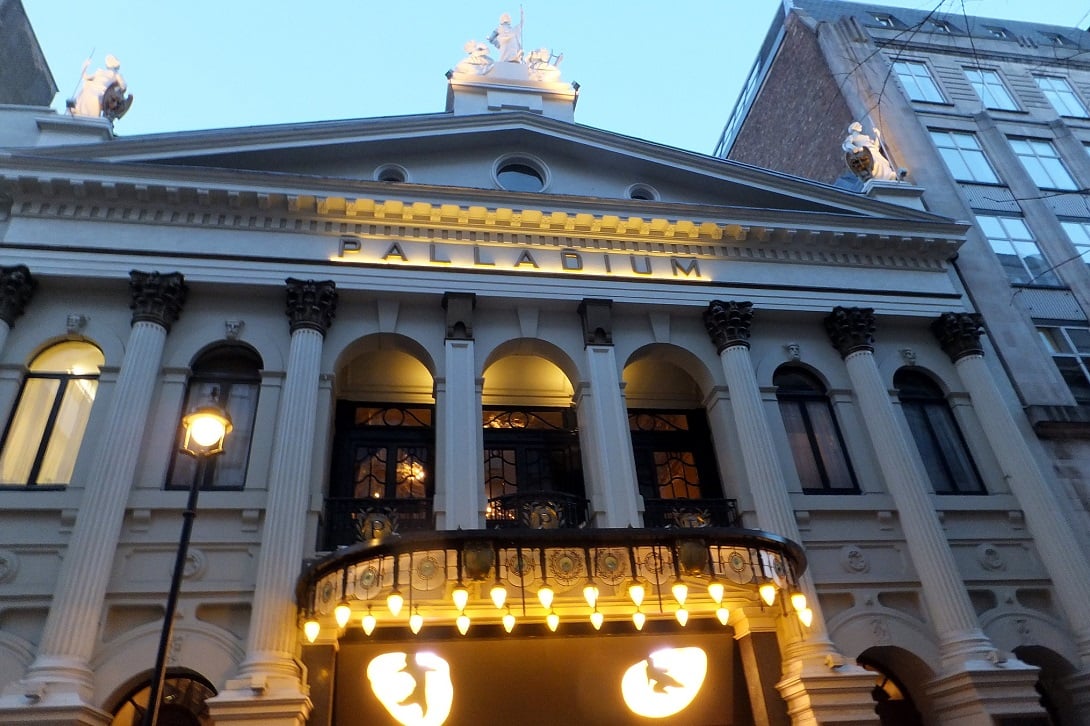
London Palladium, pictured, will host a panto benefitting from the seat buying scheme
Photo: Darren Glanville
Lottery funds commercial panto company deal
Lottery operator Camelot says money for a seat buying scheme has not been diverted from not-for-profit arts activities.
Profits from National Lottery games that help subsidise public arts will fund a seat buying scheme for commercial venues.
Lottery operator Camelot says it does not yet know how much the partnership with pantomime producing company Qdos will cost.
The initiative to buy seats that must remain empty for social distancing is part of 'Operation Sleeping Beauty', Culture Secretary Oliver Dowden's plan to make Christmas pantomimes viable for producers. It is hoped that up to 250,000 people will be able to attend such a show in December and January.
READ MORE:
- Labour proposes 'transparency' in National Lottery distribution
- Inquiry into the future of the National Lottery launched
This plan is still on despite the latest lockdown. The five productions announced by Qdos thus far – Pantoland at the London Palladium, Sleeping Beauty in Manchester and Southampton, and Robin Hood in Bristol and Newcastle – do not open until December 12 at the earliest, after the lockdown is planned to end.
It is not clear how many other productions will benefit, in part because many have already cancelled their pantos this year. A Camelot spokesperson was unable to say how many productions would take part in the scheme, how long they would run for, and how many seats each would need funded to run performances safely.
"The aim, however, is to try to open theatres to get as many people to see panto, safely, as possible."
If lockdown restrictions persist and shows cannot go ahead, Camelot says Qdos will ensure 20,000 free tickets reserved for National Lottery players are made available for a different future production instead.
A Qdos representative said more shows will be announced soon, but did not respond to questions about how many seats must be bought and sold for productions to be viable.
Paper trail
Lottery funding is usually reserved for not-for-profit and social enterprise initiatives rather than commerical ventures.
Camelot says the seat buying scheme will be financed by a National Lottery "promotional fund". This fund is drawn from "a very small proportion of ticket sales" reserved from draw-based games like Lotto and EuroMillions that normally contribute to funding good causes like the arts.
This fund has previously been used for other commercial partnerships like National Lottery Cinema Day – "so this type of initiative is nothing new," a spokesperson said.
Spokespeople for the operator said the seat buying scheme was not directly being paid for by Good Causes funding or Lottery prize money.
Nor is it coming out of Camelot's marketing budget, which last year received £56.6m that would have otherwise been added to its Good Causes fund.
Annual accounts for the year to March 31 2020 show Camelot took the money from Good Causes – 20% of which is later distributed to the arts – to boost its existing £83.8m marketing budget, claiming it was necessary to "support the long term health of the National Lottery" and increase returns to Good Causes over time.
It made the same argument in 2018/19 when £39m was diverted from Good Causes for marketing purposes.
Licence renewal
Camelot was granted a six month extension on its operating licence in June after the tender process for the next licence was delayed due to Covid-19.
Camelot has operated the lottery since it first began in 1994 and has expressed interest in continuing to do so.
It may face competition from Czech gaming company Sazka Group and Indian lotteries operator Sugal and Damani, which have also completed the first step of the tendering process, according to gaming news website IGB.
The winner is due to be announced in February and assume operation of the lottery in 2023.
A parliamentary inquiry will consider the terms of the new licence and how it can raise more money for Good Causes amid rising competition from society lotteries.
Join the Discussion
You must be logged in to post a comment.